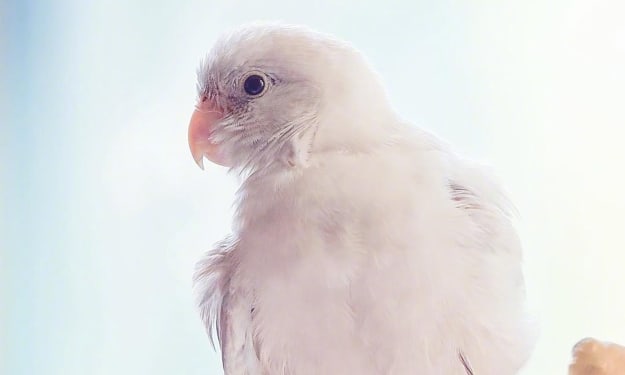At the beginning of the ceremony
Human nature interpretation

For the grand ceremony, many people may not understand, or even give extravagant, tedious evaluation; the small "council" between the three people, it is imperceptible to the existence of the ceremony. However, the ceremony is indeed a desire of the heart, or the way we beg others to fear, approve, and know ourselves. Without it, many things will be difficult to do, or even fall into chaos.
If there is no ceremony,
The death of my father stimulated my desire to understand the ceremony. On August 10 this year (2017), my father left the world because cancer was incurable. I went to the funeral for the first time as a filial son, the eldest son who could not be left alone. For three days, I had to stay in front of my father's coffin.
My cousins and I share the status of filial sons and daughters. We tie a strip of white cloth on our head, tie it on the back of our head and put it over our chest. We wear a simple coat made of white cloth, and we also tie a strip of white cloth on the corners of our trousers. Men and women wear only slightly different clothes on their heads, with women wearing straight white hats and grandchildren wearing yellow hats of the same style.
The eldest son and the filial daughter are indoors. When the guests (both men and women) come, the eldest son knelt down to burn a small piece of white paper, while the filial daughter kneels down and cries with the female guests who cry for filial piety. The louder the cry, the more filial and affectionate they feel. Those who can't cry kowtow. The female guests went indoors to cry for mourning, while the male guests went out.
When I was encoffined, I (the eldest son) had to cover the mouth of my father with ancient copper coins, and my father's brothers and other filial sons carried all corners together so that my father could lie smoothly in the coffin. According to the rules, no one is allowed to speak during the encoffined process.
After that, relatives will leave behind old bedding, old clothes will be crammed around their father, so as not to let his father shake. After everything is in place, it is the last time to see my father goodbye, and relatives can cry and shout as much as they like.
Before the funeral, I knelt on the ground and smashed the clay bowl containing a little bit of food in every meal for three days on the ground in front of the coffin. Then, the eldest son walked in front of the line, behind two rows of filial sons, relatives also followed, mighty to our family's graveyard. According to the introduction of the elder brother, the louder you cry in this process, the more filial you are, and even crying until you forget your feelings and drag down a long nose is also a kind of "beauty".
When buried, the eldest son first shoveled a handful of loess in the four corners of the coffin and in the middle of the coffin before the workers would carry out the latter work. Finally, people bow to their father, and then the filial sons burn their father's old clothes and burn some paper money to the deceased, thus saying goodbye to a person's life.
When I was in the middle of the matter, I had a more real understanding of death; I was still a person who was not good at crying in front of people, and I was inevitably embarrassed in the ceremony. All this gives me a desire to understand rituals. Why do we do these tedious procedures? what do people get out of it and show filial piety? can it be implicated by crying?
Although I think I am familiar with the ceremony, I do not fully understand it. Therefore, it is better to assume that there is no ceremony, then after our father's death, we will give it to the "courier" like a parcel and sign it. In that case, how do we express our grief and how do we end decades of relationships?
Frustrated people will also hold beer and touch glasses with the moon and shadow, which can also be called a ceremony. Isn't it worth holding a ceremony to bid farewell to a person? even if the funeral is hastily concluded, the small family should also make a small farewell ceremony with dinner or other ways, otherwise for the mundane, there always seems to be something missing. Our emotions can't forgive such a process. These are all rituals, completely in line with human feelings, out of nature.
When rituals are desires
In the complicated customs, we are just a very weak receiver in history, and it is difficult to open their secrets. But when it comes to small scenes and small emotional fluctuations, we can understand the initial initiation of the ceremony.
Perhaps we all have such a scene in our minds: when the young students heard the teacher asking for help, such as helping with a small object. The first student who understands what the teacher means must run quickly to get something, he will be secretly happy in his heart, this is the teacher's attention to himself. On the contrary, a student with slow comprehension seems to have missed a great honor.
In the 18th century, it was an honor for maids or subordinates to wear underwear to Queen Marie Antonette of France, which could only be done by the highest-ranking waitresses present. If higher-level people continue to arrive while they are getting dressed, the queen will have to wait there naked. This is like a struggle for favor among primary school students. We have etiquette levels and similar emotional desires from an early age. (for example, see ritual, Politics and Power, p. 122)
When a child wins the first place, he always expects a reward from an adult, and he will be secretly happy when others know that he is excellent. In order to encourage other brothers and sisters, parents will reward children who have achieved good grades; schools often report excellent classes and children at meetings, which can inspire others and set educational goals for the school. to transform the behavior of the children. We need small rituals to show ourselves and "correct" others all the time.
In addition, if the teacher only tells a student in private that he is the monitor and does not inform the class at the same time, such an appointment will be meaningless and may even cause invisible inner harm to the students. If the teacher tells the class the news of the post of monitor, and gives a word of encouragement, accompanied by applause and flowers, then it will be a very meaningful ceremony for the new monitor.
By extending these little things to the adult world, it is easy for us to understand why people's tedious steps and order. At the end of the day, we are an affectionate species that desires and yearns for others to take care of ourselves, so we have created many "ridiculous" steps, rituals, and rituals to satisfy these ideas.
At the beginning of the ceremony, it is always very simple, it comes from our desires and emotions, and goes to the public and public places. If it is only one person, the significance of the ceremony is not very great; only by holding a ceremony among a group of people can it be full of performance desire and value. On this basis, the ceremony can also be transformed into a more and more complex style.
* I would like to commemorate and bid farewell to my father with this article.
-
Reference (interview) item:
David Kozer, ritual, Politics and Power
About the Creator
Enjoyed the story? Support the Creator.
Subscribe for free to receive all their stories in your feed. You could also pledge your support or give them a one-off tip, letting them know you appreciate their work.





Comments
There are no comments for this story
Be the first to respond and start the conversation.